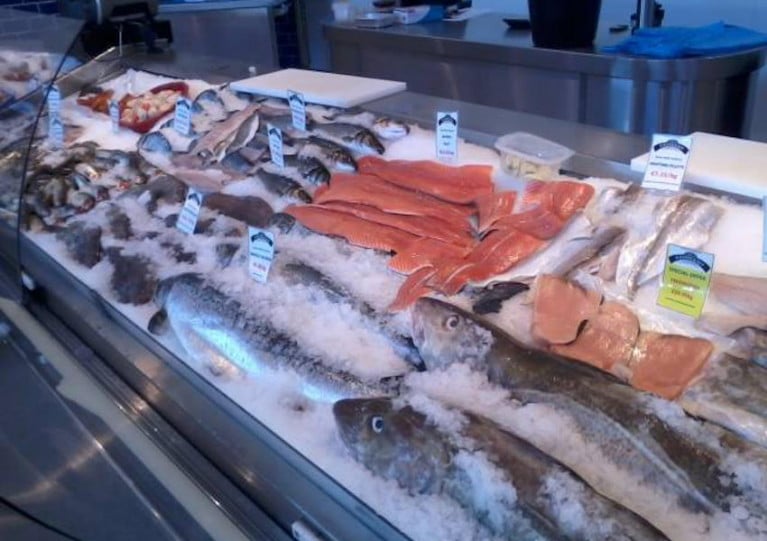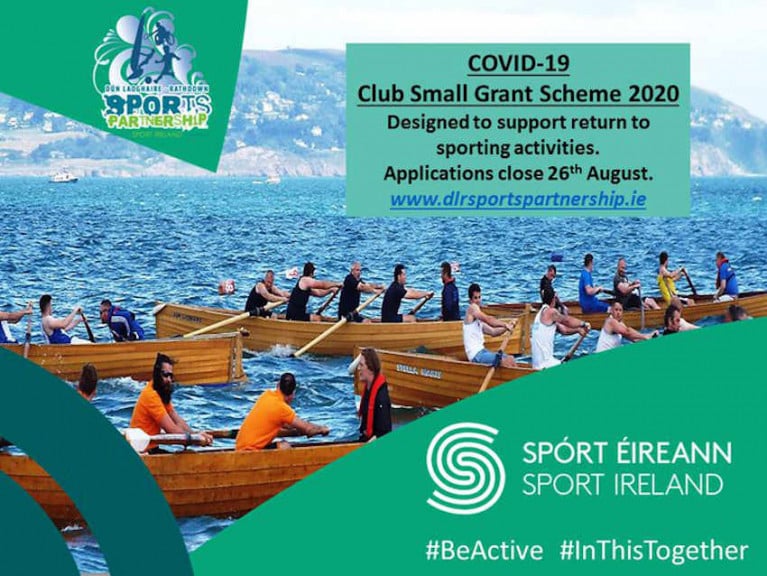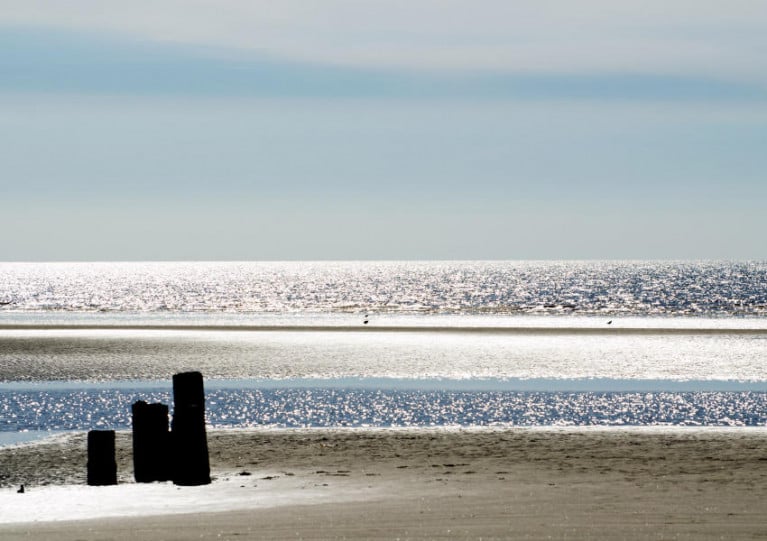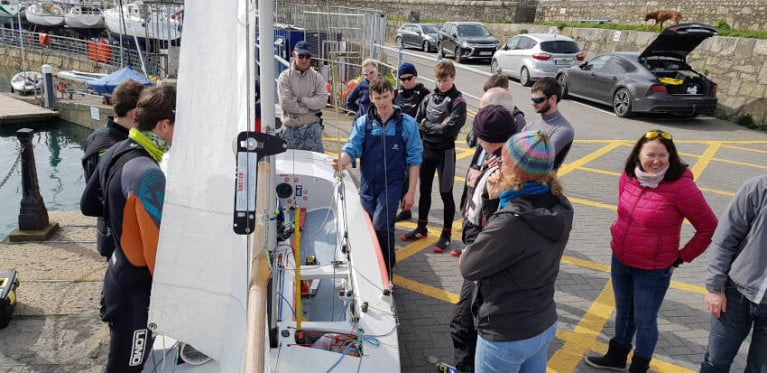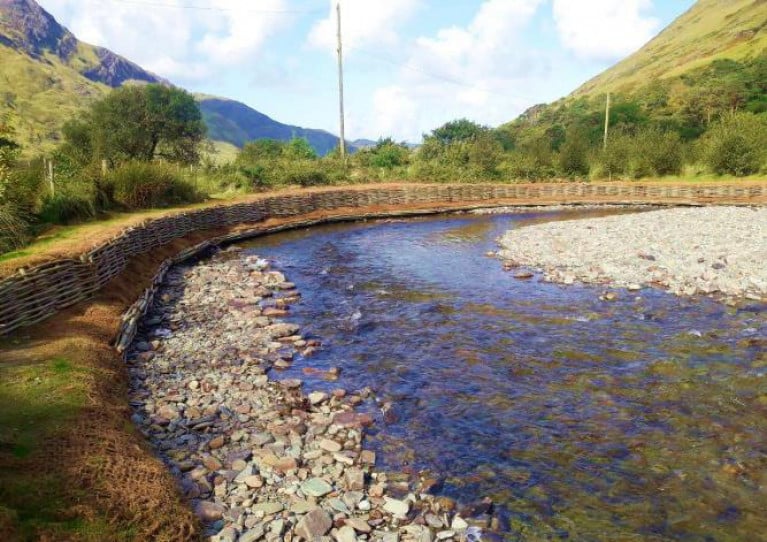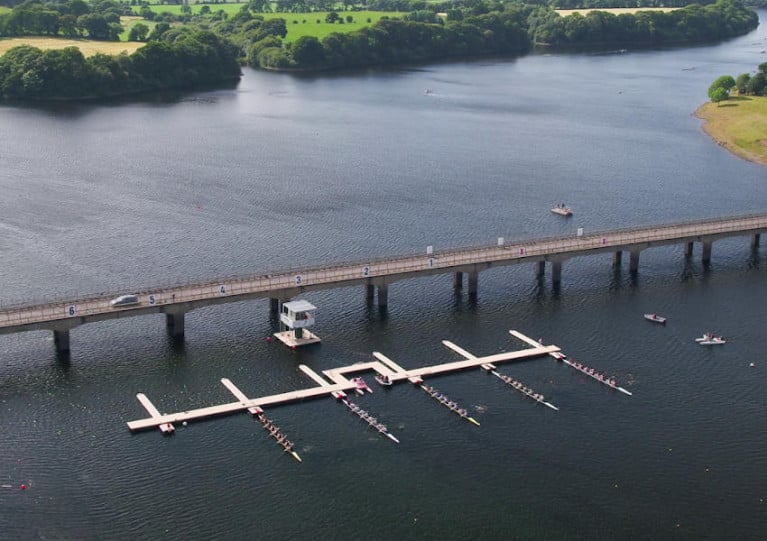Displaying items by tag: grants
RYA Northern Ireland has launched its Active Clubs Grants scheme, which offers funding for Northern Ireland clubs aiming to grow and retain their membership.
Priority will be given to clubs who are running programmes for women and girls, people with a disability, youth sailing and boating, and rural communities.
“The Active Clubs grants should encourage clubs to look at their membership make-up, what their club vision is and how can the grant support their clubs development plan,” coordinator Lisa McCaffrey says.
“Whether it is to increase female membership, to get their female members active with a Women on Water programme or to develop a Sailability programme within their club, the Active Clubs grant is flexible to be able to work with different clubs’ goals.”
The RYA website has more on the scheme and how to apply HERE.
Boost for Coastal Communities as Skills Development and Training Eligible for Funding under Brexit Blue Economy Enterprise Scheme
The fast-changing and evolving landscape of Ireland’s post-Brexit blue economy mean the skills needed for these types of jobs in coastal communities are also changing and evolving.
Individuals already working in the blue economy who want to develop their career or those who would like start to work in the blue economy are being urged to apply for training grants of up to €10,000 available under the €25 million Brexit Blue Economy Enterprise Scheme, which is being administered by Bord Iascaigh Mhara (BIM).
The blue economy covers a wide range of economic activities within coastal communities. In Ireland, about 1.9 million people live within 5km of the coast and many communities along the Irish coast depend on blue economy industries such as tourism, fishing and aquaculture.
As well as providing funding of up to €200,000 for capital projects, the recently launched Brexit Blue Economy Enterprise Scheme also provides funding of up to €10,000 per applicant for skills development and training.
Given that many courses begin term in the autumn, BIM is calling on all interested parties to visit its website to learn more about the grants that are available for skills and development.
Brenda O’Riordan, regional officer at BIM said having the right skills and training can help businesses manage change and the growing need to be more flexible and adaptable within today’s blue economy.
“One of the certainties for anyone working today is the need to be able to adapt to change,” she said. “For example, having digital skills is increasingly important for many seafood and other blue economy businesses, as more transactions move online. This is just one example of where an individual could really enhance their skills for the benefit of themselves and the wider coastal community.”
The Brexit Blue Economy Enterprise Scheme is an initiative of the Government of Ireland and is being administered by BIM. The aim of this new scheme is to help address economic and social impact of the withdrawal of the United Kingdom from the European Union for businesses operating in the blue economy and located in communities within 10km of the coastline.
The scheme has a €25 million budget available in 2022 and 2023, funded under the EU Brexit Adjustment Reserve. For more details visit bim.ie.
Local coastal community groups and micro enterprises will benefit among 62 grants worth more than €900,000 awarded by Fisheries Local Action Groups (FLAGs) under Ireland’s European Maritime and Fisheries Fund Programme (EMFF).
Announcing the grant awards totalling €915,295, Marine Minister Charlie McConalogue hailed the success of the FLAG scheme and said: “This is testament not just to the demand for such local development funding in our coastal communities but very much to the hard work of the local volunteers, many drawn from our seafood and wider marine sectors, who make up the boards of each of our seven FLAGs.”
The minister added: “I believe that the FLAG initiative has significant additional potential in the years ahead to further drive start-ups and the development of seafood and marine businesses in our coastal communities and can be a key element of our strategy in mitigating the impacts of Brexit on our coastal communities.”
Among the recipients in this final allocation are a festival to celebrate Bantry Bay botanist Ellen Hutchins and a feasibility study for renewable energy generation on Achill Island.
The FLAG scheme is now closed, having expended its full allocation, and the minister’s department says a process will be initiated as part of the preparation of the new Seafood Development Programme 2021-27 to appoint FLAGs for the next programme period from 2022.
| FLAG | Projects | Total Investment | Grant Awards |
| West | 4 | €82,704 | €42,158 |
| North West | 16 | €568,752 | €272,959 |
| North | 10 | €618,558 | €306,347 |
| North East | 3 | €56,534 | €45,227 |
| South East | 4 | €49,265 | €38,236 |
| South West | 12 | €247,334 | €107,842 |
| South | 13 | €193,729 | €102,523 |
| TOTAL | 62 | €1,816,879 | €915,295 |
Details of the individual grant awards are set out below (applicant; project title; suppprt rate; total investment; grant aid):
FLAG West
- Séamus O'Flatharta; Inis Oírr Glamping and Campsite; 40%; €17,460; €6,984
- Oranmore Castle; Oranmore Castle Cultural Centre; 40%; €42,553; €17,021
- Cuan Beo CLG Cuan Beo; Implementing a holistic approach to sustainability in Galway Bay 2020; 80%; €16,191; €12,953
- Spiddal Craft & Design Centre; Online marketing campaign; 80%; €6,500; €5,200
FLAG North West
- Ballyglass Crew; Ballyglass Crew Yachtmaster; 50%; €5,300; €2,650
- Eachtrai UISCE Teoranta T/A UISCE; Training application; 50%; €21,741; €10,870
- Sligo Rowing Club Co Ltd; Purchase of safety launch boat; 80%; €9,185; €7,348
- Bellacragher Boat Club; Printing of Claggan Ferry maps, drop-down banners, social media promotion, signs and provision of two RIB shore trailers; 60%; €15,539; €9,323
- Todhchaí Phobail Acla; To assess the feasibility of Achill Island becoming a community owned electricity and hydrogen producer through wind power; 80%; €24,280; €19,424
- Ballycroy Community Council Ltd; Ballycroy Greenway Desktop feasibility with potential design works; 80%; €15,000; €12,000
- Mayo County Council; Feasibility study on the construction of a slipway on Clare Island; 60%; €25,000; €15,000
- Mayo County Council; Westport Lido (outdoor swimming pool - tidal); 50%; €24,944; €12,500
- The Lost Valley; Support coastal heritage and tourism by improvements to access route; 40%; €99,518; €39,807
- Rosses Point Development Association CLG & Sligo County Council; Feasibility Study for Sligo Community Boat Park; 25%; €193,860; €48,465
- Belderrig Dev Committee Ltd; Restoration of road to carpark at Belderrig Harbour; 50%; €41,841; €20,920
- Tullaghan Development Association; Developing marine tourism for Co Leitrim; 80%; €1,861; €1,489
- St Colman's Care Centre CLG; St Colman's Care Centre - upgrade existing facilities and equipment; 80%; €56,515; €45,212
- River Moy Search and Rescue Ballina CLG; Water conservation in the Moy Catchment area; 80%; €6,096; €4,877
- Leitrim County Council; Feasibility study - Exploring sea access at Leitrim consultation scoping document - Wild Atlantic Way; 100%; €3,075; €3,075
- Neart Acla CTR; Achill Traditional Currach Project; 80%; €24,996; €19,996
FLAG North
- Iontaobhas Amharclann Ghaoth Dobhair; Rochtain do chathaoireacha rothaí, ráillí láimhe agus balla carrchlóis; 80%; €44,000; €35,200
- Glenties Community Playgroup Limited; To develop a creative and imaginative outdoor environment which will be designed to a nautical pirate theme; 80%; €39,500; €31,600
- Ardara Artists Resource Centre; Renovate existing building in Ardara to enable it to be used by the community; 80%; €48,750; €39,000
- St Catherine’s Vocational School; Learning in area of cultural, arts, marine; 80%; €49,455; €39,564
- Donegal County Council; Provision of scenic viewing points and improved tourism access at Melmore, Downings, Donegal; 60%; €52,300, €31,380.00
- 18th Donegal Moville Port Sea Scouts; RYA Level 1 & 2 Power Boat, RYA Foundation Safety Rescue Training, RYA Sail Training; 51% €4,800; €2,448
- Cara Na nOilean Teo; Modernisation of ferry Coll; 32%; €96,087; €30,747.84
- Mullinasole Bay Water Sports Club; Mullinasole Bay Access Regeneration Phase 1; 51%; €63,400; €32,334
- KT Nets; Upgrade of facilities at KT Nets; 32%; €128,666; €41,173.12
- Teach Bhillie; Síneadh agus uasghradú le foirgneach Theach Bhillie; 25%; €91,600; €22,900
FLAG North East
- Baldoyle Forum CLG; Baldoyle Community Hall Development Feasibility Study; 80%; €10,000; €8,000
- Rush Tourism; Pirate sculpture for Rush; 80%; €11,604; €9,283
- Skerries Rowing Club; Design team fees for Skerries Rowing Club boathouse; 80%; €34,930; €27,944
FLAG South East
- Ladies Cove Community Coastal Project; Improvement works to Ladies Cove; 80%; €30,687; €24,549
- Bannow Historical Society; Training in maritime heritage preservation and celebration; 80%; €12,728; €10,182
- Passage East Hurling Club; Beat the Ferryman Swim; 60%; €1,670; €1,000
- Hook Rural Tourism Ltd; Hike to the Hook 2020 and social media development; 60%; €4,180; €2,504
FLAG South West
- Valentia Island Way; Cookery school and demonstration kitchen; 37%; €21,657; €7,997
- Irish Coastal Rowing Federation; All-Ireland Coastal Rowing Championships 2021; 80%; €20,548; €16,438
- Dingle Sea Safari Limited; Passenger vessel; 50%; €50,460; €25,000
- Patrick Browne; Supply of local markets with fish from boat to table directly from MFV Ocean Dawn; 50%; €5,340; €2,670
- Badoiri an Bhlascaoid Teoranta; Self-drive hire boats; 25%; €44,142; €11,035
- Kerry Aqua Terra Limited; Boat, equipment and crew protection from elements; 50%; €4,950; €2,475
- The Dingle Way Coastal Trail; Cultural marine information boards and seating areas; 80%; €12,196; €9,757
- Valentia Rowing Club; One design rowing racing boat and oars, traditional four-oar boat trailer and launching trolley; 77%; €6,500; €5,000
- Irish Elasmobranch Group; Underwater survey drone; 80%; €8,480; €6,784
- Blascaoid Mór Teoranta; Equipment boat package; 25%; €23,163; €5,790
- Dingle Harbour Boat Hire; Purchase of equipment and boats; 28%; €47,894; €13,293
- Éigse na Brídeoige; Éigse Online: a series of performances, talks, seminars and interviews on the song tradition of Kerry; 80%; €2,000; €1,600
FLAG South
- Cumann Na Daoine; Building community resilience and understanding of climate change as it will impact very directly on coastal communities; 80%; €6,751; €5,401
- Ellen Hutchins Festival; She Gathered Seaweed on the Seashore: Celebrating the Botany of Bantry Bay; 62%; €3,250; €2,000
- Ard na Gaoithe; Support to sustain and diversify Ard na Gaoithe B&B and Cape Clear Foodie Stall; 40%; €2,562; €1,024
- Roaring Water Marine; Equipment to expand business; 50%; €1,719; €859
- Bantry Bay Boat Hire Limited; New kayaks, equipment and boat engine; 50%; €9,325; €4,662
- Roaring Water Sea Vegetable Company Limited; Processing unit; 50%; €17,490; €8,745
- Schull Regatta; Schull Regatta 2021; 40%; €4,821; €2,000
- Galley Flash Rowing Club; Maximising equipment resources 2021 Sculling Oars; 80%; €1,060; €848
- Skibbereen Rowing Club; Safety launch; 80%; €8,275; €6,620
- ZT Fish Company Limited; Mobile retail unit; 50%; €23,495; €11,747
- Travara Shellfish Limited; Infrastructure and equipment; 50%; €23,827; €11,913
- Myross Rowing Club Company Limited; Club fleet upgrade; 65%; €7,750; €5,000
- Allihies Seafood Limited; Developing a sustainable micro-algae cultivation and processing facility; 50%; €83,401; €41,700
Marine Marine Charlie McConalogue has announced €4.8 million in new investment by eight seafood processing companies, with his department’s European Maritime and Fisheries Fund Programme (EMFF) providing more than €1.4 million in grants.
The grants amounting to €1,408,949 are funded half-and-half by the Government and European Union and are subject to terms and conditions.
Announcing the grants, Minister McConalogue said 2020 “has been a difficult year for our seafood sector, as it has for our economy as a whole.
“So, it is heartening to see many of our leading seafood processors continue to invest to further grow their businesses. I am delighted to support these eight seafood processors in building for the future.
“Although the processing sector continues to face challenges, with the pandemic continuing to impact on world markets and uncertainties and risks around the ongoing trade negotiations with the UK, there are also many opportunities to continue to develop and prosper, as companies adapt and innovate to unlock the market opportunities that are available for quality Irish seafood products.”
The minister added that the EMFF remains “open for business” and continues to provide grants for a wide range of investments in Ireland’s seafood sector “including capital investment, innovation, business planning and marketing”.
The latest funding boost for the sector follows €3.5 million invested in six seafood processing companies in June, and a €3.4 million investment across 15 aquaculture enterprises in July.
Among the eight beneficiaries in this latest round of investment, Co Cork-based Good Fish Processing and Keohane Seafood also received grants in the June funding announcement.
Grant approvals - Seafood Processing Capital Investment Scheme 2020
|
Beneficiary |
Location |
Project |
Total Investment |
EMFF Grant |
|
Bio-marine Ingredients Ireland Ltd. |
Monaghan |
Automated Powder Bagging System and associated modifications. |
€153,691 |
€46,107 |
|
Rockabill Seafood Ltd. |
Dublin |
Air purifier and crab labelling system |
€153,281 |
€43,918 |
|
Shellfish De La Mer |
Cork |
Airflow, cooler and conveyor systems, and steam cooker |
€442,590 |
€130,723 |
|
Atlantis Seafood Wexford Ltd.
|
Wexford |
White fish filleting line & Skin Packer |
€715,685 |
€214,706 |
|
Kish Fish Company Ltd.
|
Dublin |
Blast chill, packing room, vacuum packing machine |
€30,825 |
€9,248 |
|
Good Fish Processing (Carrigaline) Ltd.
|
Cork |
White fish filleting line |
€1,511,444 |
€449,979 |
|
Keohane Seafoods Unlimited
|
Cork |
Salmon processing equipment and factory reconfiguration |
€1,712,709 |
€463,899 |
|
Breizon Ltd. |
Galway |
Reduction in energy costs through solar PV installation |
€93,799 |
€14,070 |
|
Total: |
|
€4,814,024 |
€1,372,649 |
Grant approvals – Seafood Innovation and Business Planning Scheme
|
Beneficiary |
County |
Project |
Total Investment |
EMFF Grant |
|
Keohane Seafoods Unlimited
|
Cork |
Management and business planning consultancy |
€72,600 |
€36,300 |
|
Total: |
|
|
€72,600 |
€36,300 |
Dun Laoghaire’s waterfront yacht clubs are among the sports clubs that may be eligible to apply for Covid-19 Club Small Grants of up to €1,500 through the Dun Laoghaire Rathdown Sports Partnership.
The grants are part of a series of funding schemes from Sport Ireland following the announcement of €70 million of funding by the Government to support the sports sector in response to the coronavirus crisis.
Implemented by Sport Ireland’s network of Local Sports Partnerships, the grant scheme will provide assistance to local clubs with covering costs associated with the reopening of sports clubs.
Grants can be used to support Covid-19-related expenditure dating from 2 May, when the Roadmap to Recovery was published, onwards.
The scheme is needs-based, designed to support sports clubs that do not have the finances to implement the necessary hygiene and social distancing protocols.
As the total fund available is limited, clubs which already have the finances to implement Covid-19 protocols should not apply.
In addition, the scheme is designed and intended to support return to sporting activities only and cannot be used to support costs related to hospitality services.
There is a limit of one application and €1,500 per club on this grant scheme. Applications will be means tested and only clubs with the most need will be eligible for the full amount. Clubs should not feel that they have to apply for the full amount to be considered for support.
Sports clubs are advised to contact DLR Sports Partnership at [email protected] or 01 2719502 for further information on this scheme.
Funding applications must be submitted prior to Wednesday 26 August via the application form HERE.
Irish Sea Marine Life Conservation Gets Funding Boost In UK
Three wildlife trusts in the north-east of England have been boosted with a £300,000 (€345,000) award from a major grantmaking charity for efforts to protect marine wildlife and habitats in the Irish Sea.
As the Chester Standard reports, the Esmée Fairbairn Foundation has given the five-year grant to fund staff carrying out marine policy work and promotion in the north-west region and the wider Irish Sea.
“The funding will enable us to continue our work to protect and lobby for Marine Protected Areas as well as raise awareness about issues affecting our marine life and champion the sustainable management of our seas,” said Martin Varley, operations director with the Cheshire Wildlife Trust.
The grant will also support collaborative work with fellow wildlife trusts in Lancashire and Cumbria, which have already secured public and political support for the designation of 10 Marine Conservation Zones in the Irish Sea.
The Cheshire Standard has much more on the story HERE.
Class Coaching Grant Now Open For Applications
Irish Sailing’s Class Coaching Grant for 2020 is now open for applications.
The grant allows sailing classes to apply for €400 for approved Irish Sailing coaches and €200 for non-approved coaches.
Currently approved coaches are displayed on the Irish Sailing website and will be updated regularly.
Approved coaching grants for 2019 were for the Wayfarer, E-Boat, Water Wag, 420, Mirror, IDRA, GP14, 2.4mR, Topper, Fireball, Laser 4.7, Laser Radial and Laser Standard.
Over 200 sailors benefited from the training in 2019 — 38% of whom were women and girls.
Details on how to apply, and all relevant terms and conditions, are available HERE.
Inland Fisheries Ireland Launches 2020 Funding Call To Community Groups & Angling Clubs
Inland Fisheries Ireland (IFI) has opened a new funding round available to community groups and angling clubs across the country.
The funding will be awarded to fisheries conservation projects and development projects with over €1.3 million announced yesterday (Thursday 16 January).
Applications are invited from angling clubs, local development associations, tidy towns and others who may be looking to carry out relevant projects.
The 2020 funding call consists of three schemes:
- The Capital Grants Scheme 2020 (€240,000): This scheme supports projects which will help deliver an accessible and sustainable fisheries resource for all. It is aimed specifically at capital projects which will improve angling access and infrastructure (eg accessible fishing stands, walkways, etc).
- The Midlands Fisheries Fund (€50,000): This scheme focuses on sustainable development works in the Midlands Fisheries Group permit area. The fund has been created through contributions from permit income received. Projects which will be eligible to receive support will improve fish habitats in a sustainable manner (eg river bank protection, control of exotic species, etc).
- The Salmon and Sea Trout Rehabilitation, Conservation and Protection Fund (€1 million): The aim of this fund is to rehabilitate, protect and conserve salmon and sea trout and their habitats. This year, funding will be available for conservation projects only (eg fish passage improvement, spawning enhancement, etc).
IFI’s Suzanne Campion said: “We are committed to realising the potential of the fisheries resource from a social and economic perspective but also to protecting it for future generations to enjoy.
“Interested groups are invited to get in touch with us for further information with guidance available throughout the application process.”
For more information about the 2020 Funding Call, download the information booklet. To submit an expression of interest, visit the IFI website HERE.
All applicants must apply through an ‘Expression of Interest’ form to progress to full application. Full applications may be submitted until the closing date of Tuesday 25 February.
High Fees Could Mean Exclusion From Future Rounds Of State Sports Grants
New rules for sports grants introduced after a controversy involving private schools two years ago could affect eligibility for yachts clubs in the future, it is feared.
Ten sports clubs across the country — two private schools and eight golf clubs — were excluded from receiving State funding under the Sports Capital Programme, it’s been reported in The Irish Times, which has much more on the story.
It follows a rule change which means clubs or schools with a one-off entrance fee of over €1,500 or an annual fee of €1,500 or more are “excluded from receiving a grant offer”.
A briefing from the Department of Transport, Tourism and Sport said the new grant allocation rules were enacted to “ensure that as much money as possible goes to the most deserving organisations”.
A department spokesperson confirmed that such changes will be under review, along with all other aspects of the grant scheme annually, ahead of next year’s round of funding allocations.
No yacht clubs were denied under this year’s amendments, but there are concerns that some Dublin clubs could fall foul of these new measures in future.
National Rowing Centre Gets €600k For Upgrades Under Large Scale Sport Infrastructure Fund
The National Rowing Centre is among 25 initiatives benefiting from a €77.4 million cash injection under the new Large Scale Sport Infrastructure Fund (LSSIF).
The Cork facility, advocated by Cork County Council and Rowing Ireland, is on the provisional list to receive €613,049 towards a total cost of €908,220 for the urgent upgrade of water training amenities (slips and pontoons and rowing course), the racing course and access.
The first set of allocations under the LSSIF was announced yesterday (Friday 10 January) following what the Department of Transport, Tourism and Sport said was “a rigorous assessment process”.
All applications required support by a national governing body or local authority, with priority given to those judged likely to increase participation or audience, boost performance and/or improve access for people with disabilities.
All listed projects in Stream Two will now undergo further assessment and a due diligence procedure. Stream One allocations will be announced shortly.



























